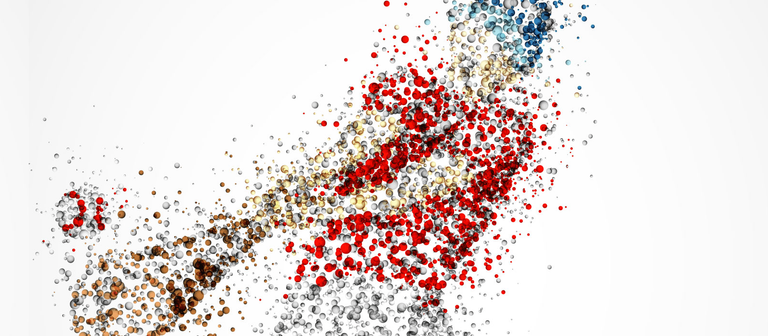
I’ll bet the first thing that you will think of when answering this question would not be “Data Driven Decision Making” … but let us make our case. Baseball underwent a revolution in the last 20 years like many industries that have been redefined by the incorporation of technology into their respective industries. Kevin Grier wrote in his article “The Economics of Moneyball” that:
The Moneyball thesis is simple: Using statistical analysis, small-market teams can compete by buying assets that are undervalued by other teams and selling ones that are overvalued by other teams.
The industry of Baseball had, it seemed, found some tools to help reinforce, support and even possibly replace some of the tired cacophony of Baseball adage, superstition and cliché the game was steeped in. The following passage is from the movie “Money Ball” which was based on Michael Lewis’s best-selling book about this topic. In this scene the Old Baseball Scout tries to tell Billy Beane, the General Manager, that his Data Driven approach to baseball has no place in the game and only the scouts “wise-eye”, developed through many hard years of experience could possibly understand what player decisions would give the team the best chance to win.
Old Baseball Scout: Billy, can we talk?
Billy Beane: Yeah.
Billy Beane: You're unhappy Grady. Why
Grady Fuson: Major League Baseball and its fans...they're gonna be more than happy to throw you and Google boy under the bus if you keep doing what you're doing. You don't put a team together with a computer.
Billy Beane: No?
Old Baseball Scout: No. Baseball isn't just numbers. It's not science. If it was anybody could do what we do, but they can't cause they don't know what we know. They don't have our experience and they don't have our intuition.
Billy Beane: [dismissively] Ok.
Old Baseball Scout: Billy, you got a kid in there that's got a degree in Economics from Yale. You got a scout here with 29 years of baseball experience. You're listening to the wrong one. Now there are intangibles that only baseball people understand. You're discarding what scouts have done for 150 years, even yourself?
Billy Beane: Adapt or die.
Ok... so… Shift isn’t looking to build a Baseball team or to put a winning team out there with the smallest possible budget, although our Therapists might argue…(Joking!) The Field of Psychology, does however, have it’s share of “Grady-like” naysayers who would rather hold to tradition for its own sake. What additional observations can be useful for the Field of Psychology when it comes to this data driven revolution in Baseball?
- The patterns are in the numbers… Grady’s pride and fear that the game could be passing him by made him miss Billy’s perspective. 1) The patterns of Baseball that a scout could see can also be unearthed by the correct subset of data. 2) There will be obvious patterns that Grady will miss due to his own bias and dissonance. 3) Other patterns, seemingly unconnected to the game of Baseball on the field, effect the outcome of the game as much as the readily observable patterns from the game itself. Carl Jung said that, “Mans task is to become conscious of the things that are unconscious.” Since most people don’t have the option of their manager breaking down game tape of the daily rollercoaster through their thoughts and behaviours. The collection of meaningful data seems and obvious requirement to help those looking to become conscious of their not so apparent inconsistencies.
- You shouldn’t have to be old, grizzled before you can learn from experience. - Does increased experience automatically place one in a category above another in terms of knowledge and ability? Honestly? It usually does… due to the capacity of the average human to cause themselves undue levels of pain or harm for many years before finally learning a lesson. Experience means something in Baseball and in Psychology. Shift focuses on the elements of the psyche which prevent us from learning these lessons as they occur and accelerate the learning process?
- Confirmation bias in self-reporting situations. - As mentioned earlier, “there will be obvious patterns that Grady will miss due to his own bias and dissonance”. Relying on a scout’s singular view of a baseball prospect is a risky business move when it comes to investing millions of dollars into a young talent. Relying on your own recall related self-assessment can be just as risky when it comes to your life and future prospects.
- Advanced Metrics
From Wikipedia:
In terms of the Field of Psychology, advanced metrics have been used against humanity historically to predict and thus control their future behaviours(most notably by the advertising industry) since onset of the Information Age around 1970. Shifts mandate is to use this technology to free humanity instead of manipulate it.“Advanced Metrics is the term for the empirical analysis of sports, particularly statistics that measure in-game productivity and efficiency.”
- As we think, so we feel and so we act… These are less words and more a mathematical equation. If we can understand it as an immutable law of nature then we can start to feel the necessity of learning the answer to the equation. The Shift Protocol is built on the bedrock of this philosophy.
Congratulations @shiftme! You have completed some achievement on Steemit and have been rewarded with new badge(s) :
Click on any badge to view your own Board of Honor on SteemitBoard.
For more information about SteemitBoard, click here
If you no longer want to receive notifications, reply to this comment with the word
STOP